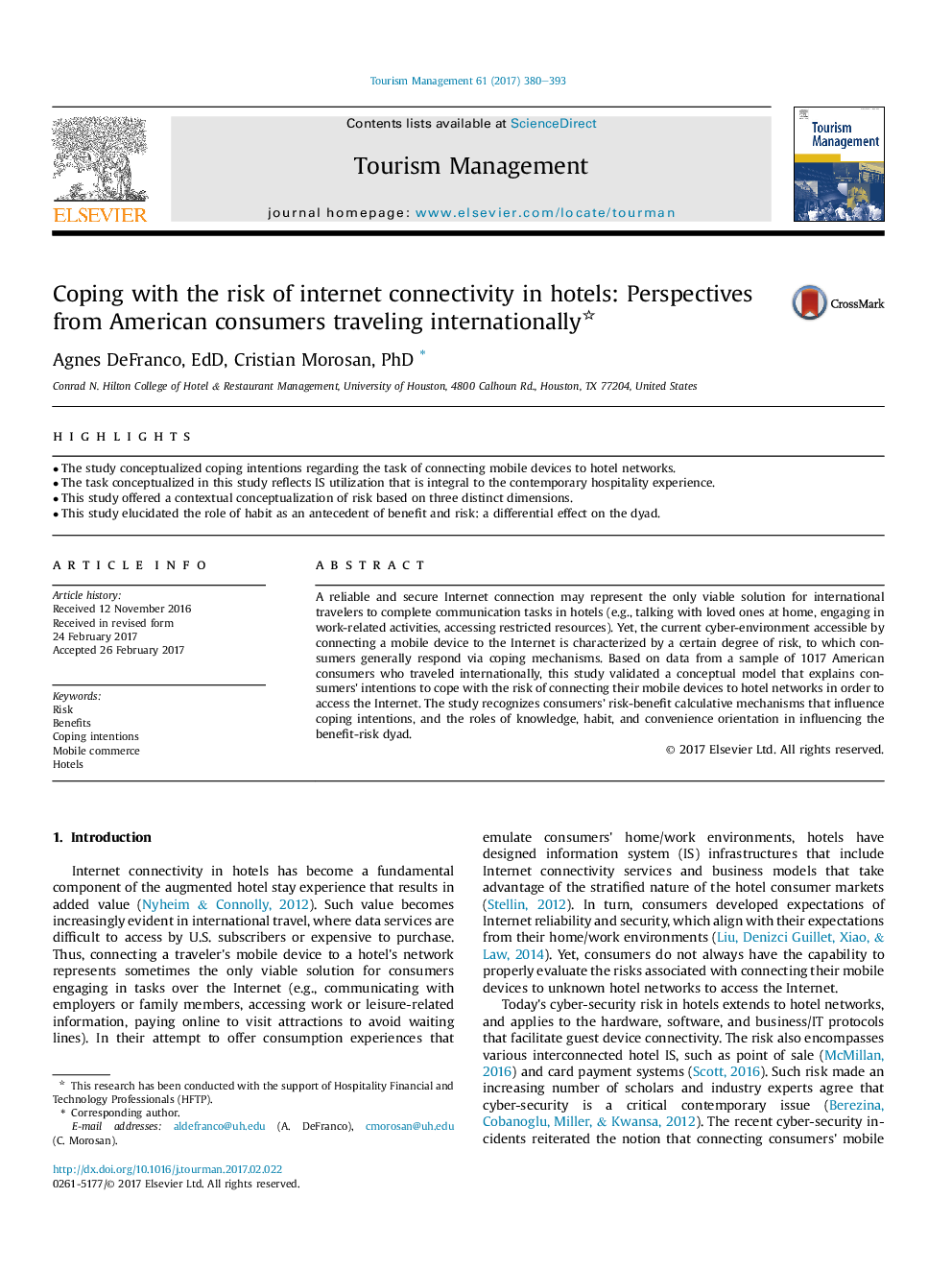| Article ID | Journal | Published Year | Pages | File Type |
|---|---|---|---|---|
| 5108501 | Tourism Management | 2017 | 14 Pages |
Abstract
A reliable and secure Internet connection may represent the only viable solution for international travelers to complete communication tasks in hotels (e.g., talking with loved ones at home, engaging in work-related activities, accessing restricted resources). Yet, the current cyber-environment accessible by connecting a mobile device to the Internet is characterized by a certain degree of risk, to which consumers generally respond via coping mechanisms. Based on data from a sample of 1017 American consumers who traveled internationally, this study validated a conceptual model that explains consumers' intentions to cope with the risk of connecting their mobile devices to hotel networks in order to access the Internet. The study recognizes consumers' risk-benefit calculative mechanisms that influence coping intentions, and the roles of knowledge, habit, and convenience orientation in influencing the benefit-risk dyad.
Keywords
Related Topics
Social Sciences and Humanities
Business, Management and Accounting
Strategy and Management
Authors
Agnes EdD, Cristian PhD,
